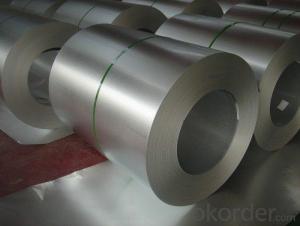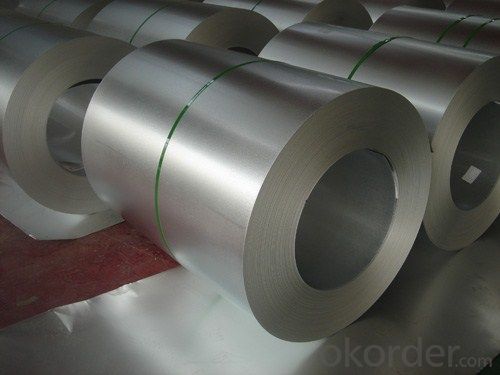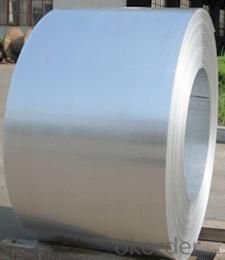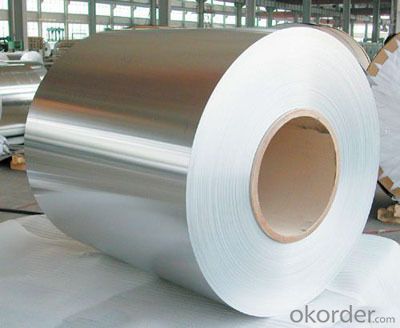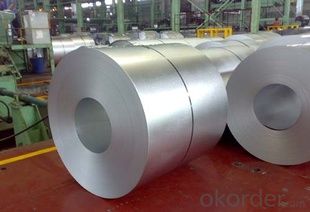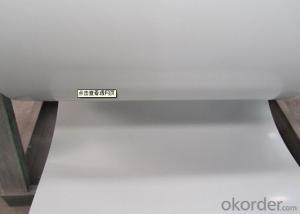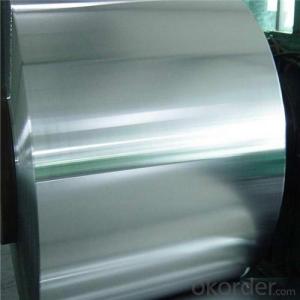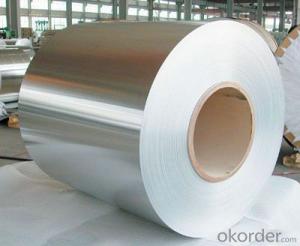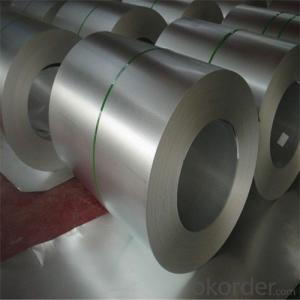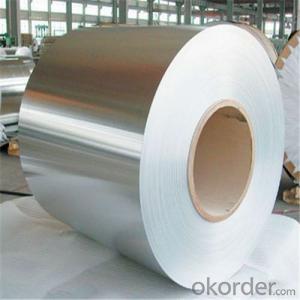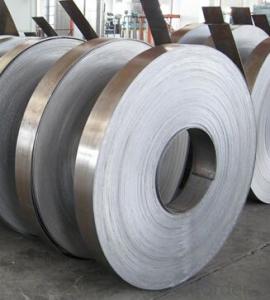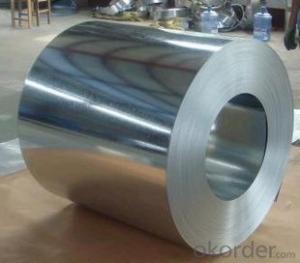Hot-Dip Aluzinc Steel Coil Used for Industry with Our Best and High Quality
- Loading Port:
- Tianjin
- Payment Terms:
- TT OR LC
- Min Order Qty:
- 25 m.t.
- Supply Capability:
- 10000 m.t./month
OKorder Service Pledge
OKorder Financial Service
You Might Also Like
Hot-Dip Aluzinc Steel Coil Used for Industry
1.Structure of Hot-Dip Aluzinc Steel Coil Description
Hot-dip aluzinc steel sheet is substrated on cold rolled steel in various strength and specification. Coating composition is 55% aluminmum in weight ratio, 43.4% zinc, and 1.5% silicon, with excellent and heat resistance performance.
With excellent cold bending molded manufacturablity, good decoration effect, strong anti-corrosion ability, galvanized steel coils and sheets are also pollution-free and easily recycled. Accordingly, they can be used as final products and basic plates of color coated steel coils
2.Main Features of the Hot-Dip Aluzinc Steel Coil
•High Purity
•Easy control and operation
•High strength
•Fast melting
•Competitive price
•Best Service
3. Hot-Dip Aluzinc Steel Coil Images
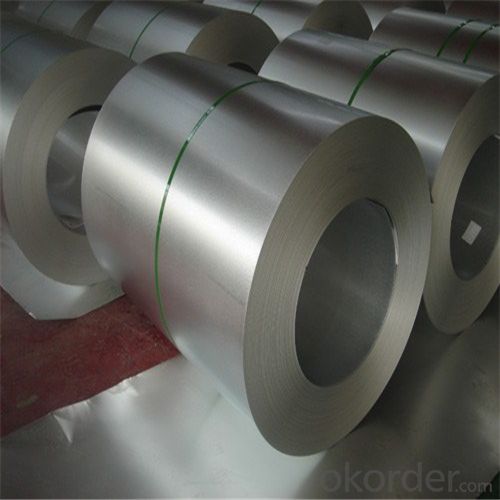
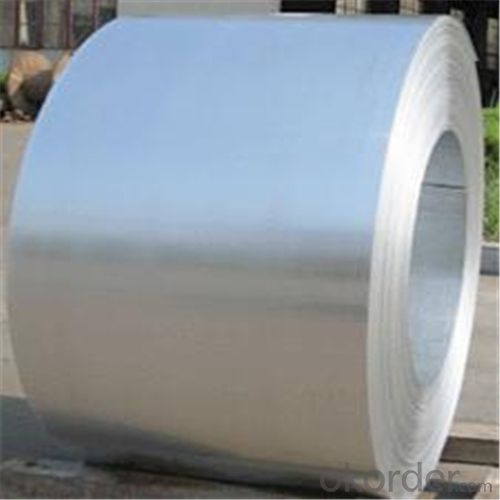
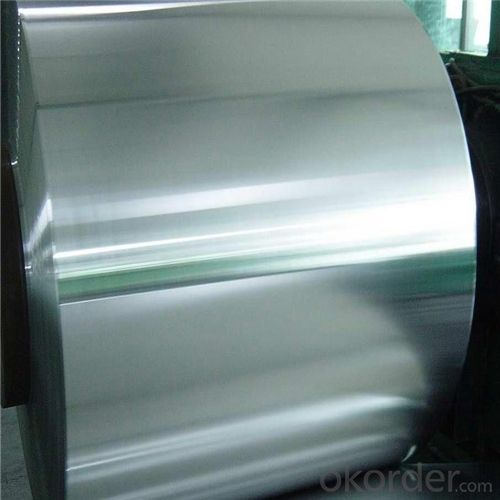
4. Hot-Dip Aluzinc Steel Coil Specification
Hot-Dip Aluzinc Steel Coil | |
Thicknenss | 0.16mm-3.5mm |
Width | 1250mm max |
Coating mass | 30-185g/㎡ |
Spangle | Regular/Minimized/Zero Spangle |
Coil inner diameter | 508-610mm |
Surface treatment | Chromated/non chromated, Oiled/non oiled, Anti finger print |
5.FAQ of Hot-Dip Aluzinc Steel Coil
1.How long can we receive the product after purchase?
In the purchase of product within three working days, We will arrange the factory delivery as soon as possible. The pecific time of receiving is related to the state and position of customers.Commonly 7 to 10 working days can be served.
2.How to guarantee the quality of the products?
We have established the international advanced quality management system,every link from raw material to final product we have strict quality test;We resolutely put an end to unqualified products flowing into the market. At the same time, we will provide necessary follow-up service assurance.
- Q: so what is stronger tempered steel Blade or carbon steel Blade? a Machete made of those i said above what will last longer,what can cut better,which will will shatter first.
- 1. all steel blades are tempered, whether they are high carbon blades or low carbon blades. 2. It depends on what kind of steel they are made from. So im going to answer this question, using the following qualifications. 440A stainless steel 440C stainless steel - high carbon. The higher the carbon level, the more brittle a blade becomes. But the higher the carbon level, will increase a steel’s wear resistance , meaning it will have a better edge retention 2. They both will work well. Pros's / Con's The 440C blades will need less sharpening, but are harder to sharpen The 4401 blades will need to be sharpened more, but are far easier to resharpen. So it basically comes down to where you will be using them and how you will be using them. If your gonna be out in the middle of the jungle and stopping for the night, then the high carbon blade would probably be better, you use it all day, resharpen it at night. If your gonna be cutting brush, tobbaco, etc on your land, then the 440A would be better, because you can take a couple of min's to resharpen it often
- Q: What is the shear modulus of steel and silver? Please help! and state where you got it from...what site did you used? Thanks.
- There are more than 10,000 different steel alloys that have been specified and used for different purposes. They cover a huge range of mechanical properties. For silver, are you talking about pure silver, or a silver alloy with a additives to improve its mechanical properties? Typical values for mild steel at room temperature are E = 210 GPa, G = 80 GPa (source: 30 years working as a mech. engineer) Wikipedia gives E = 80GPa, G = 30GPa for pure silver (temperature not specified). Silver alloys may be very different from those values. The properties will also depend on the metal forming process (e.g. drawn wire, annealed, etc). NB some alloys with silver in their common name contain no silver at all.
- Q: How do steel coils contribute to the construction industry?
- Steel coils are a crucial component in the construction industry as they are used to manufacture various structural elements like beams, columns, and girders. These coils are transformed into different shapes and sizes, providing the necessary strength and durability required for construction projects. Additionally, steel coils are also used in the production of roofing, siding, and other building materials, making them an essential resource in the construction industry.
- Q: So here's the deal:I recently bought McCann's Instant Steel-Cut Oatmeal, and I'm wondering about any possible nutritional differences between the instant and regular stove-top. In case you haven't seen it, instant steel-cut comes in individual packets and is cooked only by adding boiling water, the same as instant rolled oatmeal (i.e. Quaker).When I asked about instant vs. stove-top rolled oats, my doctor said there are no significant nutritional differences, but since the main health appeal of steel-cut is the coarse grain, it doesn't seem possible for the finer ground instant to be as nutritious.I can't find much info about this, so any help is appreciated!
- The rationale for consuming steel cut oats rather than rolled oats (beyond the fact that the former taste really good) is the lower glycemic index. It is my understanding that in the rolled oat category, it is better to eat the long-cooking variety rather the instant for the improved fiber load and lower glycemic index. While I do not understand exactly how instant steel cut oats are processed and how much the glycemic index is affected by processing, it is safe to assume that the old unprocessed steel cut oats are still best. I always prepare 4-6 servings of the steel cut oats at one time and warm up a serving when needed to avoid having to wait 30 minutes to cook them. My rule of thumb: the less processing for any food product, the better it is for me.
- Q: What are the safety regulations for handling steel coils?
- The safety regulations for handling steel coils include wearing appropriate personal protective equipment, such as gloves and steel-toed boots, using proper lifting techniques and equipment, ensuring a clear and organized work area, and following guidelines for stacking and securing coils to prevent accidents and injuries. Regular inspections and maintenance of equipment and storage areas are also crucial for ensuring safe handling of steel coils.
- Q: How are steel coils used in the food processing industry?
- Steel coils are commonly used in the food processing industry for various purposes. One primary application is in the production of food packaging materials, such as cans and containers. These coils are transformed into thin sheets or strips that are then formed into the desired shape and size for packaging different food products. Steel coils are also utilized in the manufacturing of equipment and machinery used in food processing plants. This includes machines like conveyors, mixers, and slicers, which are crucial for the efficient and automated processing of food products. The durability and strength of steel make it an ideal material for these types of equipment, as it can withstand heavy usage and maintain its structural integrity. In addition, steel coils are used in the construction of storage and refrigeration facilities within the food processing industry. These coils are transformed into durable and insulated panels that are used to create walls and ceilings of cold rooms, freezers, and warehouses. The excellent thermal properties of steel help maintain the desired temperature and prevent spoilage of perishable food items. Furthermore, steel coils are employed in the production of cooking and baking equipment, such as ovens and grills. These coils are transformed into heating elements that provide consistent and efficient heat distribution during the food preparation process. This ensures that food is cooked or baked evenly, resulting in high-quality and delicious products. Overall, steel coils play a vital role in the food processing industry by providing the necessary materials for packaging, equipment, and infrastructure. Their strength, durability, and thermal properties make them a preferred choice for various applications within this industry, ensuring the production of safe and high-quality food products.
- Q: Iron melts faster when there will be low carbon in Iron.During steel making the molten Iron gets purified and alloying being done through the process. How the carbon is being controlled at Iron melting stage and what it is called?
- Steel is usually made in a two-step process. As you may know, carbon, in the form of coke, is added to the iron ore during the initial smelting process. This is the first step. The conversion of iron ore into raw iron is accomplished with a blast furnace. Carbon dissolves with the iron during the smelting process. The amount of carbon in the iron is generally not controlled at this point as this would be too difficult, the excess carbon is removed in the next step. The result is pig iron which is crude iron that has a very high carbon content, and a large amount of impurities. Pig iron is almost as brittle as glass, and it is useless in this form. In most modern steelmaking operations, molten pig iron is tapped from the blast furnace three or four times per day- it is not allowed to cool. The liquid pig iron is carried in ladles directly to a Basic Oxygen Furnace which converts the pig iron into steel. The basic oxygen converter uses a stream of pure oxygen to burn off the excess carbon. Impurities are also burned off, particularly phosphorus, silicon, and sulfur (which damage the steel's properties.) These elements all have a much higher affinity for oxygen than iron does, so the iron itself remains unchanged. Once the carbon content and the impurities are reduced to the desired level. The oxygen is shut off, and the iron has now become steel. At this point other alloying elements may be added, such as chromium, manganese, or molybdenum. These elements improve the steel's properties, but also add to it's price. If necessary, more carbon can be added as well if the carbon content has accidentally dropped too low. Finally, molten steel from the basic oxygen furnace is poured off. It can be cast into ingots, billets, or thin slabs.
- Q: How are steel coils used in the production of aerospace structures?
- Various methods are employed in the production of aerospace structures, with steel coils being a key component. Aircraft frames and components are commonly manufactured using steel coils. These coils are processed through a series of operations, such as cutting, bending, and welding, to create the necessary structural members of an aircraft, including fuselage sections, wing spars, and landing gear. The preference for steel coils in aerospace applications is due to their exceptional strength and durability. They are capable of withstanding the immense forces and stresses experienced during flight and landing. By utilizing steel coils, aerospace structures are able to maintain the required structural integrity, even in harsh operating conditions. Moreover, steel coils are also utilized in the production of aerospace fasteners and connectors. These components are crucial for securely holding various parts and structures together. Bolts, screws, and rivets, which are essential for assembling different sections of an aircraft, are commonly manufactured using steel coil materials. The strength and reliability of steel coils make them ideal for fastening applications, ensuring the secure connection of aerospace structures. Additionally, steel coils find application in the production of aerospace equipment and machinery. Heavy machinery and specialized equipment are integral to aerospace manufacturing processes. Steel coils are frequently used in the construction of these machines, as they provide robust and sturdy frameworks. Tooling, jigs, fixtures, and molds, which are necessary for producing aerospace structures with precision and accuracy, often incorporate steel coils. In conclusion, steel coils play a vital role in the production of aerospace structures. They are utilized as raw materials for manufacturing aircraft frames and components, fasteners and connectors, as well as aerospace equipment and machinery. The strength, durability, and reliability of steel coils make them indispensable in the aerospace industry, ensuring the safety and integrity of aerospace structures.
- Q: How are steel coils used in the production of metal storage systems?
- Steel coils are typically used as a primary raw material in the production of metal storage systems. These coils are unrolled and processed through various machines and equipment to form different components such as shelves, frames, and supports. The steel coils are cut, shaped, welded, and coated to ensure durability and strength. Additionally, the coils can also be used to create interlocking panels or sheets that form the walls and roofs of the storage systems. Overall, steel coils play a crucial role in the manufacturing process, providing the necessary material for the construction and assembly of metal storage systems.
- Q: Do you know of any movies that featured the steel drum?
- You okorder /.. If I can find any clips, I'll add them, but I'm sure that many movies in the proper settings (Trinidad, etc.) would have such music and/or show a group or at least a single performer. For example, Cool Running could be a possibility.
Send your message to us
Hot-Dip Aluzinc Steel Coil Used for Industry with Our Best and High Quality
- Loading Port:
- Tianjin
- Payment Terms:
- TT OR LC
- Min Order Qty:
- 25 m.t.
- Supply Capability:
- 10000 m.t./month
OKorder Service Pledge
OKorder Financial Service
Similar products
Hot products
Hot Searches
Related keywords
